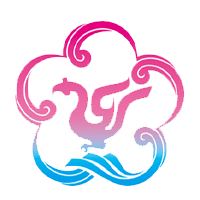Living in Wuxi
With a population of 7.5 million, Wuxi is one of China’s most prosperous and developed cities. It is sometimes called ‘Little Shanghai’ for its buoyant economy.
Located in the south of China’s Jiangsu Province, Wuxi is approximately halfway between the cities of Shanghai (128km east) and Nanjing (183 km west). Along with the nearby city of Suzhou, Wuxi is a popular travel destination for visitors from Shanghai and is less than an hour away from this city by high-speed train. Taihu Lake is located to the south of the city and the Yangtze River is located to the north.
“Wuxi is home to marvellous landscapes and people.”
Zhengjing Dong, Principal

History
The city’s history can be traced back over 3,000 years when it was established at the end the Shang Dynasty (1600-1046 BCE). The area was rich in tin deposits during the Zhou (1046-256 BC) and Qin (221-206 BC) dynasties. The tin, however, eventually depleted towards the end of the Qin Dynasty, earning the city its name, which literally means ‘a place without tin’.
Thanks to its warm and humid climate, the area around Wuxi has long been known as a ‘land of fish and rice’. Taking advantage of its position on the Yangtze River and the Grand Canal, a major trade route between north and south China, Wuxi became well-known for its rice and cloth market, right up until the 19th century.
Thanks to its warm and humid climate, the area around Wuxi has long been known as a ‘land of fish and rice’. Taking advantage of its position on the Yangtze River and the Grand Canal, a major trade route between north and south China, Wuxi became well-known for its rice and cloth market, right up until the 19th century.

Living in Wuxi
The city has a growing expatriate population, with many international services such as supermarkets, healthcare providers and restaurants. Wuxi has excellent transport links by road and rail, as well as an airport providing easy access to destinations around China, as well as some internationally.




 ENGLISH
ENGLISH 简体中文
简体中文

